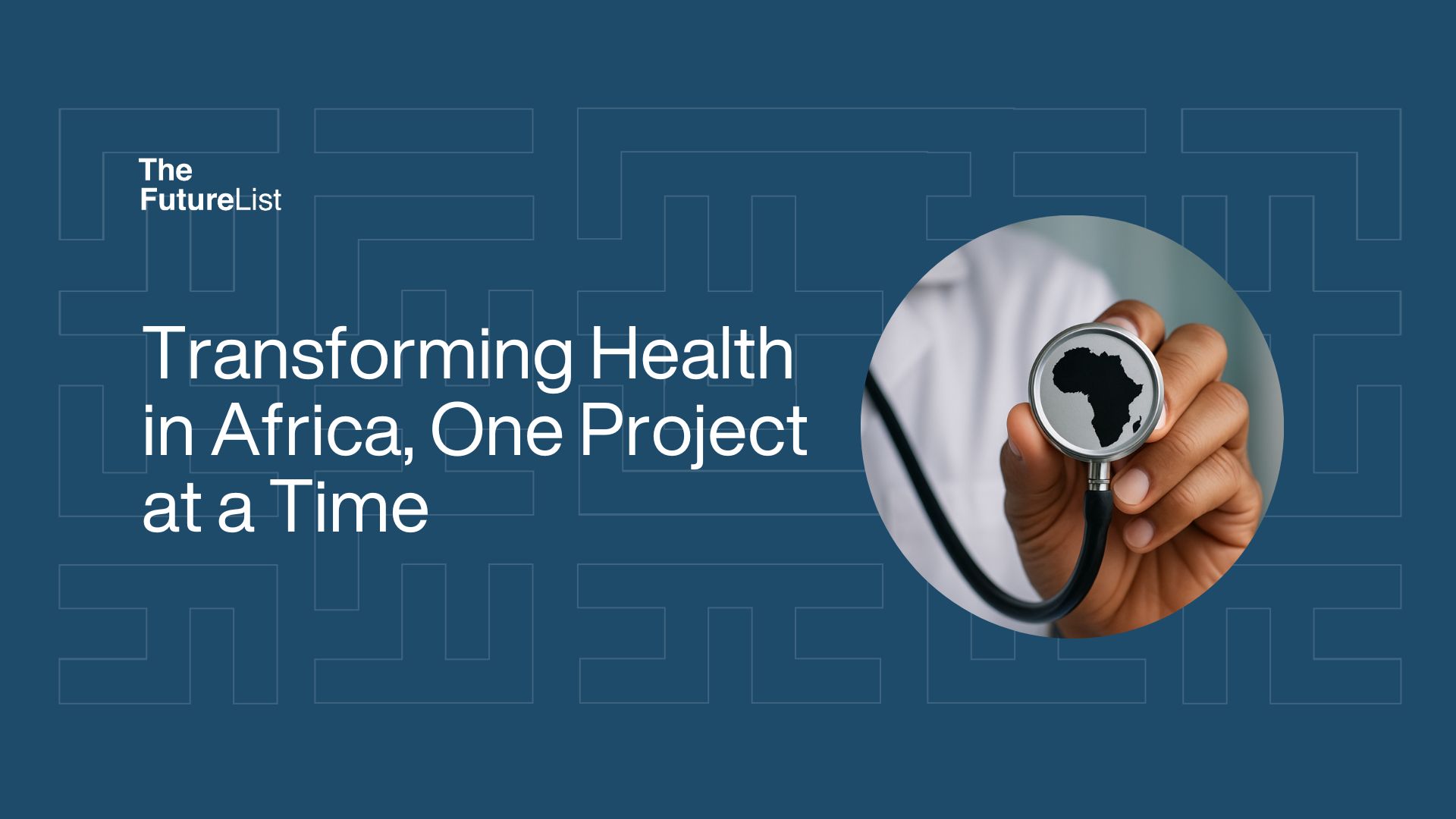
Transforming Health in Africa, One Project at a Time
By Henry Duah
Africa faces a complex landscape of health challenges, from high rates of infectious diseases like malaria and tuberculosis, to gaps in maternal and child health, inadequate healthcare infrastructure, and a growing burden of non-communicable diseases. Rural communities are often disproportionately affected, with limited access to trained health professionals and up-to-date medical information. Outbreaks such as Ebola and COVID-19 have exposed weaknesses in disease surveillance and emergency preparedness, further underscoring the need for resilient and innovative health systems.
On the good side, across the continent, a wave of homegrown innovation is taking root. Governments, communities, and organisations are combining local insight with new technology to reimagine care delivery and strengthen public health. Projects like Mhealth Burkina Faso, the Benin Health System Enhancement Program, Togo’s Assurance Maladie Universelle (AMU), and Senegal’s AI4PEP directly address these challenges. By digitising records, expanding healthcare access, ensuring universal coverage, and leveraging artificial intelligence for real-time disease surveillance, these initiatives set new standards for what is possible. They offer practical solutions that can improve health outcomes, making care more accessible, equitable, and resilient for millions across Africa.
These pioneering projects not only address current challenges but also lay the groundwork for a healthier, more prosperous future on the African continent.
Projects Spotlight
Mhealth Burkina Faso: Digitising Community Health for Lasting Impact
In Burkina Faso, a mobile app is replacing the cumbersome pen-and-paper record-keeping of community health workers. With deployment across nine regions and 12 health districts, more than 4,000 community health workers now use the Mhealth app to streamline data collection and patient information management. This digital transformation significantly enhances efficiency, reduces errors, and enables faster, data-driven responses to health issues at the grassroots level. Backed by the Global Fund, Mhealth Burkina Faso empowers frontline workers to deliver better, more responsive care to their communities, demonstrating how appropriate technology can drive significant change even in resource-limited environments.
Benin Health System Enhancement Program: Strengthening Primary Care and Resilience
Benin’s Health System Enhancement Program, launched with support from the World Bank, aims squarely at raising the quality and accessibility of primary health care, with an emphasis on reproductive, maternal, neonatal, child, and adolescent health and nutrition. The multi-million-dollar initiative is aligned with Benin’s national development goals. It focuses on two key areas: improving access to and the quality of health services, and building the country’s emergency preparedness and disease surveillance capacity. Managed by the National Primary Health Care Agency, the program also builds on prior successes in disease surveillance and maternal health, ensuring integration, continuity, and sustainability of care for Benin’s rapidly growing population.
Togo’s Assurance Maladie Universelle (AMU): Expanding the Social Safety Net
Togo made history in January 2024 by rolling out its flagship universal health coverage program, Assurance Maladie Universelle (AMU). In just the first six months, the AMU registered over 800,000 people, covering nearly 50% of the target population, a giant leap forward for health equity and access. The program operates through a dual-tier system: mandatory health insurance for public and private sector workers, and a separate scheme for the poorest and most vulnerable citizens. Managed jointly by the National Health Insurance Institute (INAM) and the National Social Security Fund (CNSS), the AMU is rooted in ambitious government reforms and increased investment in the health sector. Complementary initiatives, such as the Wezou program, have made maternal health services free and accessible to all, driving dramatic improvements in maternal and child health outcomes.
AI4PEP Senegal: Harnessing AI for Epidemic Preparedness
Senegal has emerged as a pacesetter in digital public health, thanks to the AI4PEP (AI for Pandemic and Epidemic Preparedness) initiative. Recognised in the “2025 Q1 AI in Africa” report, AI4PEP Senegal leverages the newly launched “3S” AI-powered platform to revolutionise community-based surveillance for zoonotic diseases, which can jump from animals to humans. The program is grounded in the One Health philosophy, striving for interconnection between human, animal, and environmental health and emphasising community engagement at the heart of disease detection. Real-time data analytics and natural language processing enable the faster and more accurate identification of emerging health threats, allowing for early intervention. This local and equity-driven model is becoming a beacon for the ethical and context-sensitive adoption of AI in African health systems.
Sources: Mhealth_Burkina, Benin Health System Enhancement Program, AMU (Assurance Maladie Universelle), AI4PEP Senegal
Get innovation insights from The FutureList weekly. Subscribe to our newsletter here
Categories
- Agritech
- Artificial Intelligence
- Biotech
- Blockchain
- Climate Tech
- Data Infrastructure
- Edtech
- Events
- Fashion
- Fintech
- Healthtech
- Infrastructure
- Innovation Memos
- Innovation Scout Program
- Insight
- Insurtech
- Machine Learning
- Martech
- Mobility
- Music and Media
- Partner Offers
- Perks
- Procurement
- Proptech
- Retailtech
- Ridehailing
- Ridesharing
- Robotics
- Space Aviation
- Supply Chain
- Talent
- Telecoms
- Uncategorized
- Venture Capital
- Wastetech
- Women In Tech
Recent Posts
- The Rise of Physical AI: Intelligence Moving Into the Real World
- Shaping the Future of Medicine: How Tiny Devices Are Revolutionising Vital Body Functions
- The Rural Health Operating System: Reinventing Access to Care in Africa
- Intelligent Grid Monitoring: How IoT and AI Are Powering the Future of Energy
- Innovation Memo with STEMAIDE: Hands-on STEM Education for Young Africans